In case of sci-fi books the limit is only your own imagination.
Do you ever dream of a comprehensive collection of sci-fi books of our time? We attempt to mix and rank the classics with the newest works of science fiction books. Sci-fi novels are often written with out of the box ideas that may seem unbelievable, but that is precisely what makes them so appealing.
Part of the best sci-fi books are classics, known by nearly every person who reads. And yet there are still some new ones worth mentioning, they are simply a “must”.
What Are The Best Known Sci-fi Books Genres?
There are a great number of science fiction book categories, just some of the main ones:
- Adventure science fictions
- Space operas
- Cyberpunk and post-cyberpunk
- Military sci-fi
- Hard Science Fiction
- Humorous science fiction
- Sci-fi horror
- Historical science fiction books
- Far future sci-fi books
- Sci-fi romance novels
- Spiritual and Philosophical sci-fi books
- Novels on future society (visions about our future)
- Superhero books (soft science fiction)
- Video game fictions and Game fanfictions (part sci-fi, part fantasy)
- Speculative fictions (a great number of books connecting to science fictions)
- Techno-thrillers (part of this genre strongly connected to sci-fi)
Our list ranks the top science fiction novels ever written, starting with #1, but honestly in terms of story #20 is as good as the first, just different. Anyone can suggest new titles on our Twitter page via message, making it more accurate.
These books represent the greatest works in the world of science fiction. It doesn't really matter whether they're classic or modern, utopian or dystopian we tried to find the most relevant ones. We think fantasy is a separated genre so you won't find any Tolkien books here. We preserved not to put more than one work from the same author into this list.
What Are The Essential Must-read Science Fiction Novels of Our Time?
Foundation (Foundation Trilogy), by Isaac Asimov (1951)
The book first shows a “psychohistorian” named Hari Seldon, whose research uses mathematics in order to predict the future. The Emperor (Cleon I) does not have the ability to prevent the decline of the their civilization predicted by Seldon. Seldon collects clever scientists and students to an unkown planet to save the most important knowledge of the humankind, and to start a new society mastering technology, art and science. This is the “Foundation”.
Isaac Asimov's tremendous and influential Foundation series stood out for its mix of bold action, imaginative ideals, and extensive worldbuilding. If you want to read the series in chronological order, you need to know that the author wrote the first parts (Prelude to Foundation 1988) of the story years after the original Foundation trilogy (Foundation. 1951).

Ender’s Game (Ender's Game Series), by Orson Scott Card (1985)
The army are recruiting young soldiers to prepare for the next attack of a hostile alien race. Ender, a brilliant young boy quickly becomes familiar with military tactics and mastered his leadership skills in order to lead the army against the aliens. But not every detail fits into the great picture.
Clearly, Ender’s Game is the mark of an excellent sci-fi book, so a lot of people probably share my assessment of author's work. This sci-fi book has aliens, ridiculously smart children, a fast-paced and interesting plot line and action and battle and war! It's beautiful written and should certainly be read.
Pandora's Star (Commonwealth Saga), by Peter F. Hamilton (2004)
In 2380 humankind lives in different planets connected by a wormhole. Sentient alien races, independent AI and advanced biotechnology are all part of this future.
An astronomer Dudley Bose observes a strange thing on the sky: the Dyson Pair, two stars seemingly disappeared, which couldn't be a natural phenomenon. The Commonwealth creates “Second Chance” (an interstellar spaceship) to investigate the phenomena. After the ship comes closer to the foreign star system they discover an aggressive species called the Primes.
Overall, a splendid piece of science fiction escapism. Hamilton deftly creates an absolutely believable future set hundreds of years in the future, which in itself is rather impressive.
Old Man's War (Old Man's War Series), by John Scalzi (2007)
A lot of people love Scalzi's writing raw style filled with natural humour. In this military science fiction Scalzi plays with the idea of immortality which is only available for the armed forces. Soon the protagonist John Perry found himself in the middle of a galactical war between Humankind and Consus. John Perry celebrated his 75th birthday celebration by going to the grave of his wife and in the army.
John Scalzi's Old Man's War is a series, that is ground breaking in modern sci-fi books. It uses humor and well developed characters to introduce some interesting hence not totally new technology and it's implications. Overall this novel by the author isn't accidentally on the 4th spot.

Dune, by Frank Herbert (1965)
We found ourself 20,000 years in the future where people are living across the galaxy. One of their favorite resource is called “melange” a spice which is extremely rare. Two big house is facing against each other the House of Atreides and the Harkonnens. In Frank Herbert's book, we find some classic motives combined with a great story played in rather than strange universe.
A sympathetic, dramatic hero's journey, Dune tells the story of Paul Atreides, a brilliant and gifted young man born into a great destiny beyond his comprehension, who must travel to the most terrible place in the cosmos in order to ensure the safety of his loved ones and his people.
Hyperion (Hyperion Cantos), by Dan Simmons (2011)
Seven people, seven stories, one thing in common. They have been chosen to visit the Shrike (an incredible strong creature of the universe) in the Time Tombs on Hyperion. There are people who worship this creature and there are the ones against it. Nearing Armageddon, the seven prophets set out to uncover the secrets of the mystery.
Dan Simmons has certainly added important values to today's modern sci-fi storytelling. The book is ultra intelligent and the parallels are phenomenal. If you into intelligent multiple storyline books this one is definitely a timeless sci-fi book.

2312, by Kim Stanley Robinson (2012)
Scientific advances have opened new avenues for exploration, but numerous developments have occurred throughout space and time. in 2312 Earth is no longer our only home. The number of our habitats have expanded beyond our solar system. The next year, a sequence of events will challenge humanity to confront our past, present, and future.
The book includes a substantial amount of hypothetical information on how people can quickly and easily travel in and across the solar system. Some of these ideas are quite advanced, and in a sense sounds like a real world possibility. Anyway Kim Stanley Robinson's book is a real deal among hard science fiction novels.
1984, by George Orwell (1949)
A timeless classic dystopia by George Orwell. In this book we meet The Party, which controls everything in this world. The eyes of the Big Brother is everywhere, and every intention which isn't matching the aspiration of the Party is considered against the Party.
The story starts when the Party is forcing the implementation of a new language called “Newspeak” in order to eliminate all rebellious thoughts and words from the language. Our protagonist Winston quickly finds himself in the middle of situation he never ever wanted to be in. In this unpleasant world, spies are in every corner and the abuse of power is a commonplace.
Ready Player One, by Ernest Cline (2011)
2045, Earth. We jump into the world of Virtual Reality where a so-called OASIS is in the middle of everyday life. Everybody related somehow to this virtual world, but mainly the lower class, who finds a new opportunity, a new place where they could be famous and even rich.
The creator of OASIS hided several easter eggs in this virtual universe, anyone who founds these keys become instantly famous. Ready Player One is a fast-paced near-future sci-fi with a lot of relations to today's gaming world.

Project Hail Mary, by Andy Weir (2021)
Only Ryland Grace survived the last-chance mission, and in the event that he fails, the whole world itself will be destroyed. All he knows is that he's been asleep for quite a long time. And he's just been awoken to discover himself millions of miles away from his home with only two corpses as company. And the clock is ticking…
This book is even better then Andy Weir's Martian, more mystery, more uncertainty and a real adventure. Ryland Grace should face with unusual discoveries and a lot of danger.
Recursion, by Blake Crouch (2019)
If you had the ability to go back to the exact same time and place from which a catastrophe occurred. Could you save the world from the disaster? What if this hope would be only a zero-sum game, and there is no real hope of changing things, or?
With the release of his novel, Dark Matter, Blake Crouch revealed himself to many readers as a master of psychological suspense. Three years later, it seems Crouch has established a strong genre of it's own to show to the global audience that sci-fi is more than just space travel.
The Hitchhiker's Guide to the Galaxy, by Douglas Adams (2007)
If you are looking for sci-fi humor this book is definitely the no.1. Strange characters in a comedy collection featuring Marvin the paranoid robot, Arthur Dent the hapless protagonist and many others.
Douglas Adams’s popular novel refreshes our minds by posing cosmology-shattering puzzles, trampling years of relativistic physics, toying with bouncing balls and digital clocks, and providing us with excellent commentary on such matters as dot matrix printing, potted plants, and ballpoint pens.
The Ghost in the Shell, by Masamune Shirow (1989)
The Ghost in the Shell begins in 2029, featuring Section 9 led by Chief Daisuke Aramaki and Major Motoko Kusanagi. As they investigate the Puppeteer, a cyber-criminal wanted for committing a large number of crimes by proxy through “ghost hacking” using the “cyberbrains” of the victims.
This story questions the entire existence of soul and the nature of mind. What motivation lies behind the intelligent existence. The storyline is somehow melancholic, but the questions and conversations reveal much more from the human psyche than any other books from this list.
The Three-Body Problem, Liu Cixin (2008)
At the beginning of the Cultural Revolution in China, a woman named Ye Wenjie witnessed the brutal murder of her father by a mob, giving rise to the Three-Body Problem. While at a labor camp, she is now at an isolated scientific facility where she can utilize some of her astrophysics training. While there yet, she conducts some research, and ends up developing a way for a radio wave signal to be amplified to beam into space.
Fed up with humans and with the treatment that she has been through, she anwers to Trisolarans allowing them to come to Earth. Trisolaris are coming from another world. Their home orbits around three stars in an unpredictable way, repeatedly destroying their civilization over and over again.
The Fifth Season (The Borken Earth Series), by N. K. Jemisin (2015)
A gifted woman (Essun) must hide her secret ability and find her abducted daughter in a strange world of mystery. On this planet, there exist orogenes , which are beings which possess superhuman strength. Characteristic abilities of orogenes include facilitating moderation of seismic activity, as well as causing natural disasters, such as earthquakes, which can also cause fatalities.
If two normal parents note their child has a orogenic power, they will either kill the child for being a monster as grownup, or allowing Fulcrum to take the child.
The story of three orogene women. A child, a young woman, and a middle-aged woman, all follow the adversities they endure and the racism they face as a result of their abilities.
Snow Crash, by Neal Stephenson (1992)
Snow Crash, a frenetic and somewhat eerie film, grabs you from the beginning in its opening sequence a thrilling race through an anarchic Los Angeles that has been cut up into corporate-owned ‘burbclaves.’
Our protagonist, Hiro Protagonist, a hacker and swordsman, must combat a virus that is endangering a religion. The station's central core appears to be occupied by apparitions related to fantasies.
The books makes connection between old sic-fi concepts and todays always connected world in poplar terms the ‘metaverse‘.
Consider Phlebas (Culture Series), by Iain M. Banks (1987)
The Idirans strived for their independence, while the Culture was determined to defend their moral integrity. Principles had been at stake. No concession is possible.
The novel revolves around a war between the Idiran and Culture. This story is set in numerous microcosms. Its protagonist, Bora Horza Gobuchul, is an opponent of the Culture.
This is the first published novel of the Culture series. It presented the series from the viewpoint of an opposite party, namely, the enemy.
Neuromancer (Sprawl Series), by William Gibson (1984)
A futuristic cyberpunk sci-fi book surrounds a group of mercenary criminals working to collect the data of an AI that's trying to break free. Neuromancer follows its protagonist Case, an unemployed computer hacker who is hired by a mysterious new organization named Armitage.
He’s teamed up with Molly (a cyborg) and Peter Riviera an illusionist to bring about a series of criminal activities meant to be the beginnings of a final mission. Which takes place on the orbiting space station called Freeside, home to the fortune-seeking Tessier-Ashpool family.
The family has made two AIs (Wintermute and Neuromancer) who are so powerful that they should be never linked together. Case and his partners discovered that they were hired by Wintermute to work towards accomplishing a connection between the two AIs.
The Midnight Library, by Matt Haig (2020)
This is an uplifting sci-fi book also suitable for romance lovers.
Matt Haig's work The Midnight Library delves into the infinite realms of human existence. It is about a young woman named Nora Seed, who lives a dull, uninteresting life. One night, her despair reaches a peak and she commits suicide.
The story doesn't end there. Nora gets a chance to experience various ways her life could be had she done slightly different things. She finds herself in a place known as the Midnight Library, which occupies one of two areas between life and death, and is overflowing with infinite parallel lives she might have led.

Children of Time (Children of Time Book 1), by Adrian Tchaikovsky (2015)
Imagine a world where the last remnants of humanity are searching for a new home, and a distant planet holds the key to survival—but they’re not the first to arrive.
Long ago, an experiment on this planet was meant to uplift primitive life into something great, but instead, it birthed an intelligent species of spiders. As humans race toward the planet, a clash between these two civilizations is inevitable. The future of both hangs in the balance as they each fight to survive in a universe that's more complex and dangerous than they ever imagined.

Altered Carbon (Takashi Kovacs Series), by Richard K. Morgan (2002)
By the beginning of the 25th century, humanity had spread across the entire galaxy. The world watched over by the U.N., which maintains the peace. Even in the era of modern science, there's still a lot of diversity and conflict left.
Takashi Kovacs has multiple lives, but now ha receives a new body once again. Kovacs dropped into a conspiracy of dark forces. Slowly he understand the motives and the huge gap between the wealthy and poor lives.
A well built story, and a very good world built in the future. This series reminds me of the cyberpunk novels of William Gibson.
Fahrenheit 451, by Ray Bradbury (1953)
Fahrenheit 451 chronicles Guy Montag's progress from a fireman who hated books to a rebel reader. Montag lives in an oppressive civilization that strives to eliminate all problems, discrepancies, and inconsistencies to ensure simple pleasure for all its citizens.
Montag's perception of life begins to alter when his new friend Clarisse introduces him to a world, drawing him back to a time when society lived according to the ideas of books instead of the noise of television.
If you are into classics, than finding the starting line “It was a pleasure to burn.” will definitely warm up your heart at the very beginning of the book.
Winter World (The Long Winter Trilogy), by A.G. Riddle (2019)
Mankind has had to grapple with imminent extinction, thanks to the onset of a new ice age. The latest refuge for survivors of the glaciers has been crowded out, forced to flee the only available, last habitable lands. From these lands, only they can escape their inherent desire to wage a war yet entirely inevitable.
At the very edge of the solar spectrum, a group of scientists notice a brief glimmer of something that shouldn't be there. Humankind must come to the conclusion that maybe they aren't entirely alone. And maybe this intelligence is only here to vanish our existence on this planet.
Rama II, Arthur C. Clarke (1989)
In Rama II, many years have passed since a wildly unexpected rover was boarded by humans for a period of time as they passed through Earth's solar system. Humanity is now getting ready for the arrival of a second extraterrestrial spacecraft, determined to investigate its secrets.
A team of a dozen astronauts, with diverse personalities and abilities, will board the craft, ahead of them realizing that someone among them is a betrayer and a looming calamity accidentally strands three of them alone on board as the spacecraft leaves the solar system. Characters' lack of knowledge regarding places and their length of stay on board provide insight into various aspects of space survival.
To Sleep in a Sea of Stars, by Christopher Paolini (2020)
Kira finds that an alien relic during her survey mission on a planet uncolonized. She is delighted upon discovering it, but the flash of ecstasy is extinguished when the alien dust around her begins to vibrate.
Kira is introduced through the course of a war into a voyage of self-discovery. Her first contact with beings far from Earth is quite different from her expectation, and it brings her to a place where she is not before.
While Kira and Earth fight for survival, the fate of humanity rest in their hands. Now, Kira might be humanity's only hope.
Exhalation, by Ted Chiang (2019)
Exhalation is an awesome re-framing of the scientific laws inherent in entropy. What is Expected of Us illuminates the social consequences of experiential evidence that the notion of pure choice is an illusion.
People who study the book Exhalation felt like they were re-visiting a place of childhood. They felt like hearing a song they had only heard before. Perhaps I never found any similar collection of science-fiction short stories that resembled similar style and ideas.

Solaris, by Stanislaw Lem (1961)
The book follows a team of researchers and scientist as they attempt to comprehend an extraterrestrial intelligence, which takes the form of a vast ocean on the titular alien world.
Scientists have observed intricate patterns of behavior, including a course that seems to almost rectify itself. But since only the water of the ocean looks like human biochemistry, its existence is hard to confirm.
Kris Kelvin, an overly objective psychologist is sent to a space station orbiting Earth. When he arrives, he finds out that a scientist has committed suicide dooming the others into nervous collapse.
Cloud Cuckoo Land, by Anthony Doerr (2021)
The book tells the tale of Aethon, a man who sets out to search for the “utopian city in the sky” called Cloud Cuckoo Land. Along the way, he has many adventures (transformed into a donkey, captured, escapes, transformed into a fish, eaten by a sea creature, transformed into a crow, etc.) before he at last finds Cloud Cuckoo Land.
Doerr's novel includes an orphaned girl and a farmer boy in the 1400's, an environmentalist setting off a bomb in a library in 2020, and a girl on a mission to a distant planet in the not-so-distant future.
Do Androids Dream of Electric Sheep?, by Philip K. Dick (1968)
We follow the story of detective Rick Deckard in San Francisco as he tracks down runaway androids. These androids are made of organic matter so similar to a human's that only posthumous “bone marrow analysis” can differentiate them, making them nearly impossible to distinguish from real people.
Dextra tries this undertaking so he can acquire enough bounty money to obtain a live animal to replace his homed-in computer sheep to address his upset wife's depression. The protagonist lands one of the Rosen Association's headquarters in Seattle to verify what the newest empathy analysis implies for calculating android identities.
The author creates fascinating storyline so that it is difficult to tell what is really happening. But during reading the lines you simply fall under the magic of the author.
88 Names, by Matt Ruff (2020)
Matt Ruff likes interesting speculative fictions, and he composes them usually in literary style.
John Chu is a “sherpa” who plays Call to Wizardry which is an online RPG. For money he supplies new players with a high experienced character equipped with the best weapons and armor. He can take you dragon-slaying in Asgarth's realms, hunt a rogue starship in the Alpha Sector or battle hordes of undead in the zombie apocalypse.
Chu has recently taken on new client Mr. Jones, who claims to be a rich and famous person with powerful enemies, and he's offering a staggering amount of money for an all-encompassing tour of the world of Call to Wizardy. For Chu, this mission is like a dream assignment, but as the tour gets underway. He begins to suspect that Mr. Jones is in fact the North Korean dictator Kim Jong-un, and plays under fake identity.
Terms of Enlistment (Frontlines Series), by Marko Kloos (2013)
2108 and the North American Commonwealth are overrun by its rapid growth. For Andrew Grayson, there are only two options for struggling welfare rats like himself: He could send his younger sister into a lottery and hope to win a ticket on a colony ship off-world, or he could stay at the run-down tenement and hope that the authorities neglect to notice that it's not their own fault.
In order to get off the sheltered planet back home, Andrew decides to enlist in the Army. In response, Andrew finds himself worrying he will have nothing to show for it except a retirement bonus and a ticket off Earth. As he discovers, all of the good food and fair health care he bargained for don't come cheap.
Invisible Planets, translated by Ken Liu (2016)
A contemporary Chinese sci-fi anthology.
I think the variety of characters and the writing were superior to a lot of the published stories in the United States and beyond. Furthermore, the stories in this book were pretty new for the eyes of the sci-fi fans in the western countries. They were unusual and intriguing than many mainstream writers' stories. This story collection had a lot of exceptional, original and diverse stories. I will be looking forward to the next sci-fi book from Ken Liu after his latest work Broken Stars.
My favorite stories from this collection were Folding Beijing by Hao Jingfang and Tongtong's Summer by Xia Jia.
Red Rising (Red Rising Series), by Pierce Brown (2014)
Darrow is a ‘Red' native to the color coded society of the future. Like his fellow Reds, he works all day, believing that he will make the surface of Mars livable for future generations. He put his faith that his hard work and blood will one day result in a better world for his children.
But Darrow and his kind have been deceived. Soon he discovers that humanity exited the surface centuries ago. Vast cities and lush fertile plains cover the planet. Darrow and other Reds are nothing more than slaves to a decadent ruling class. Darrow is driven by the desire to see justice, he goes to the Legendary Institute. A proving ground for the elite Gold caste, hoping to gain access to its powerful ruling class.
The Ballad of Songbirds and Snakes (Hunger Games Series), by Suzanne Collins (2020)
It's the morning of the tenth annual Hunger Games that kickoffs the annual Hunger Games. In The Capitol, Coriolanus Snow is preparing for one game victory as a coach in the Games. Snow's once-prosperous mansion is currently struggling to hang on. Considering that Coriolanus is relying on some kind of self-sacrifice for winning the school contest, to which he is desperate to outdo all of his fellow classmates.
He has received the ill-favored assignment of instructing the District 12 female tribute. Coriolanus's future can no longer be untangled from any of his actions – each choice he makes will dictate whether he gets ahead or gets wiped out. Inside of the arena, it will be a war to the death. Outside of it, Coriolanus senses the depth of his powerlessness.

Conjunction (The Wise Society Series), by A.D. Zoltan and Steven N. Nagy (2022)
When we first read Conjunction it didn't feel like a debut novel. The story blends a spiritual journey with a space opera which creates a unique and new sci-fi story concept.
Keat a young truth seeker born with the initial need to find answers to the big questions of life, finally gets into the mission of his life, to enter the first intergalactic spaceship that will visit alien planets with intelligent life and hopefully an advanced civilization.
But after Keat and his team arrives to Füzen the story shifts into a new dimension, almost literally.
The story has a coming of age nature, and utilizes the popular concept of reincarnation. Honestly the book has a potential to open new perspectives to people who want to believe something that is beyond the materialistic world.

A Closed and Common Orbit (Wayfarers Book 2), by Becky Chambers (2016)
The story shifts focus to two new characters, Lovelace, an AI adjusting to life in a human-like body, and Pepper, a mechanic with a challenging past. Chambers excels in creating a deeply immersive universe, populated with uniquely diverse alien species, each with their own rich cultures and ways of life. This diversity underscores the novel’s central theme of acceptance and coexistence, and the character-driven narrative allows for a profound exploration of personal growth and identity.
Lovelace’s struggle with her new existence and Pepper's journey from a harsh childhood to becoming a nurturing figure are depicted with great emotional depth. The novel’s emphasis on character development through introspection and dialogue rather than action provides a contemplative reading experience. Chambers handles themes of sexuality, gender, and interspecies relationships with a refreshing, unpretentious touch, presenting an optimistic view of the future.
Final Thoughts on Science fiction books
In conclusion, I hope you will find this ranked list helpful in your search for the next sci-fi read! Hence our ranks are relative and highly reflects our taste for sci-fi novels, we wanted to keep our list modern and also ideal for Gen X and Z readers.
If you're still not sure, we recommend you check out some more specific book lists like military sci-fi books or the sci-fi books with mind blowing adventures.
My profession is online marketing and development (10+ years experience), check my latest mobile app called Upcoming or my Chrome extensions for ChatGPT. But my real passion is reading books both fiction and non-fiction. I have several favorite authors like James Redfield or Daniel Keyes. If I read a book I always want to find the best part of it, every book has its unique value.







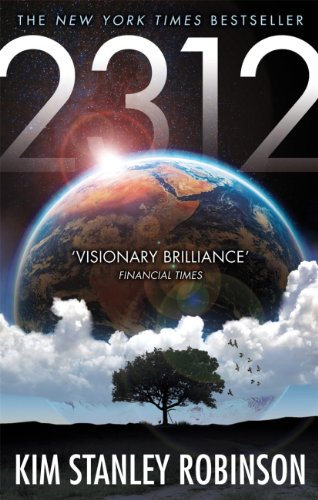



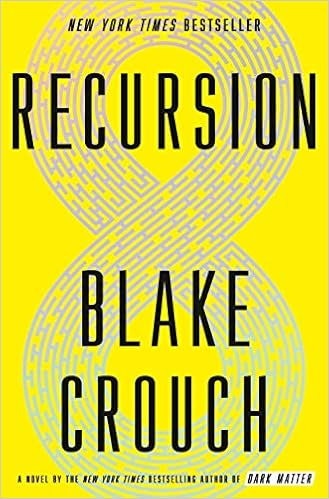
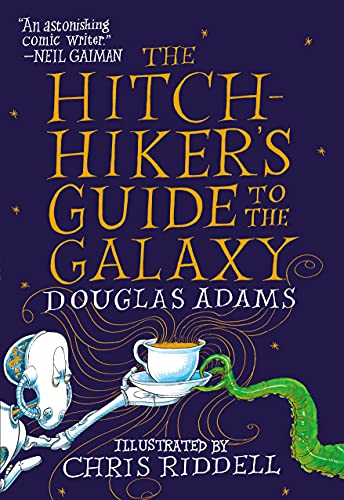




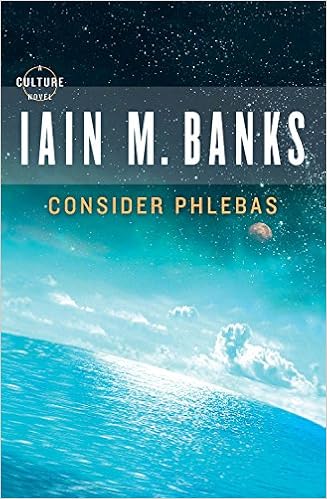

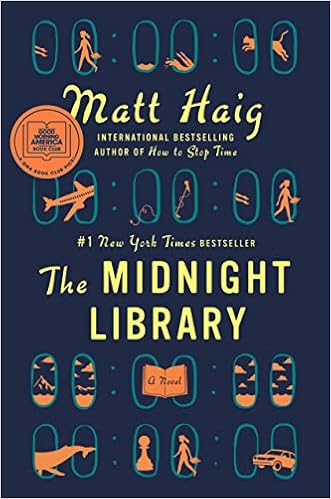

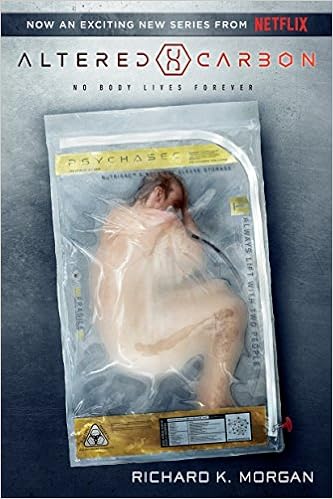






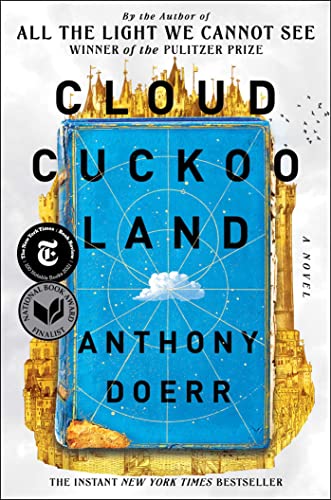

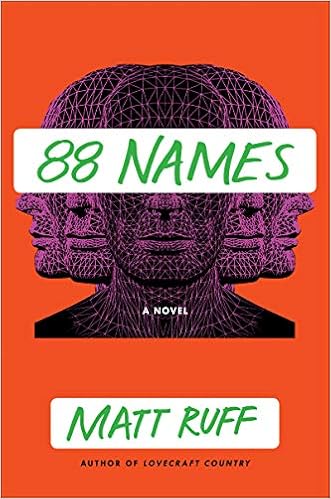








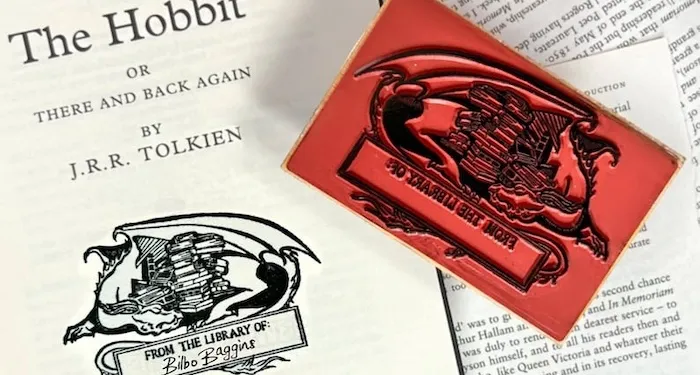

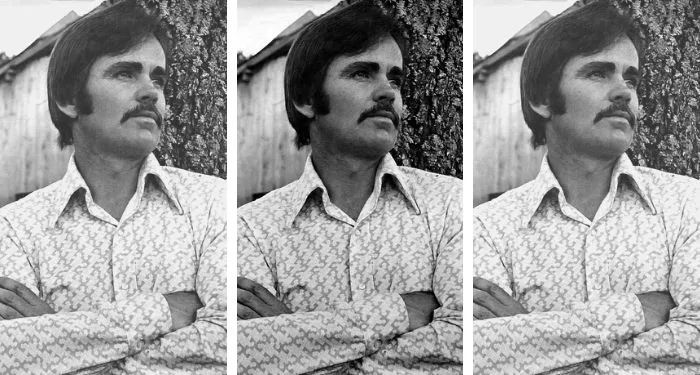



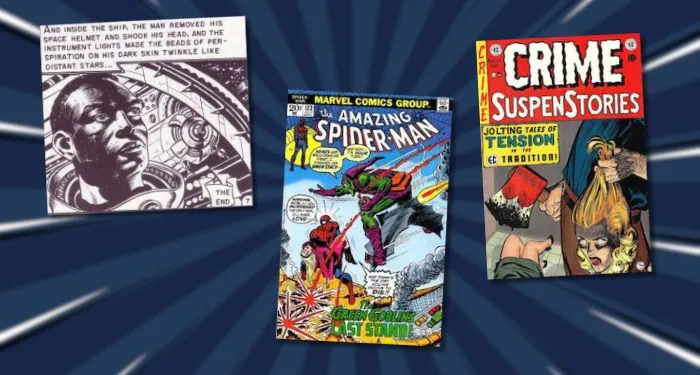
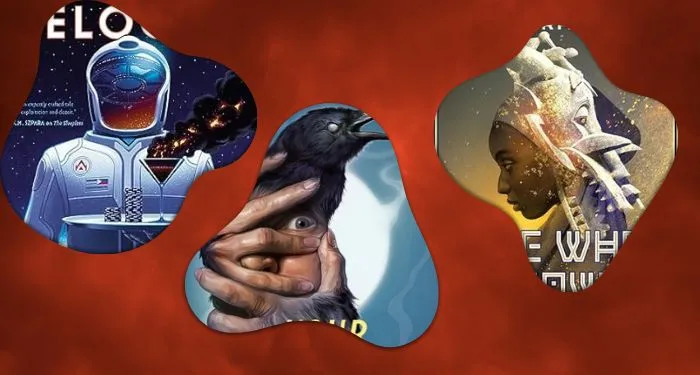
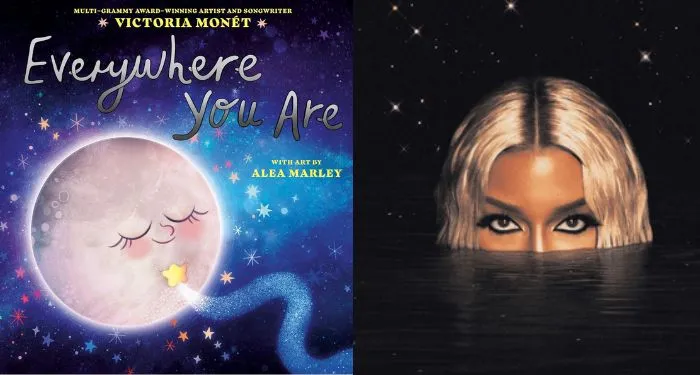








 English (US) ·
English (US) ·